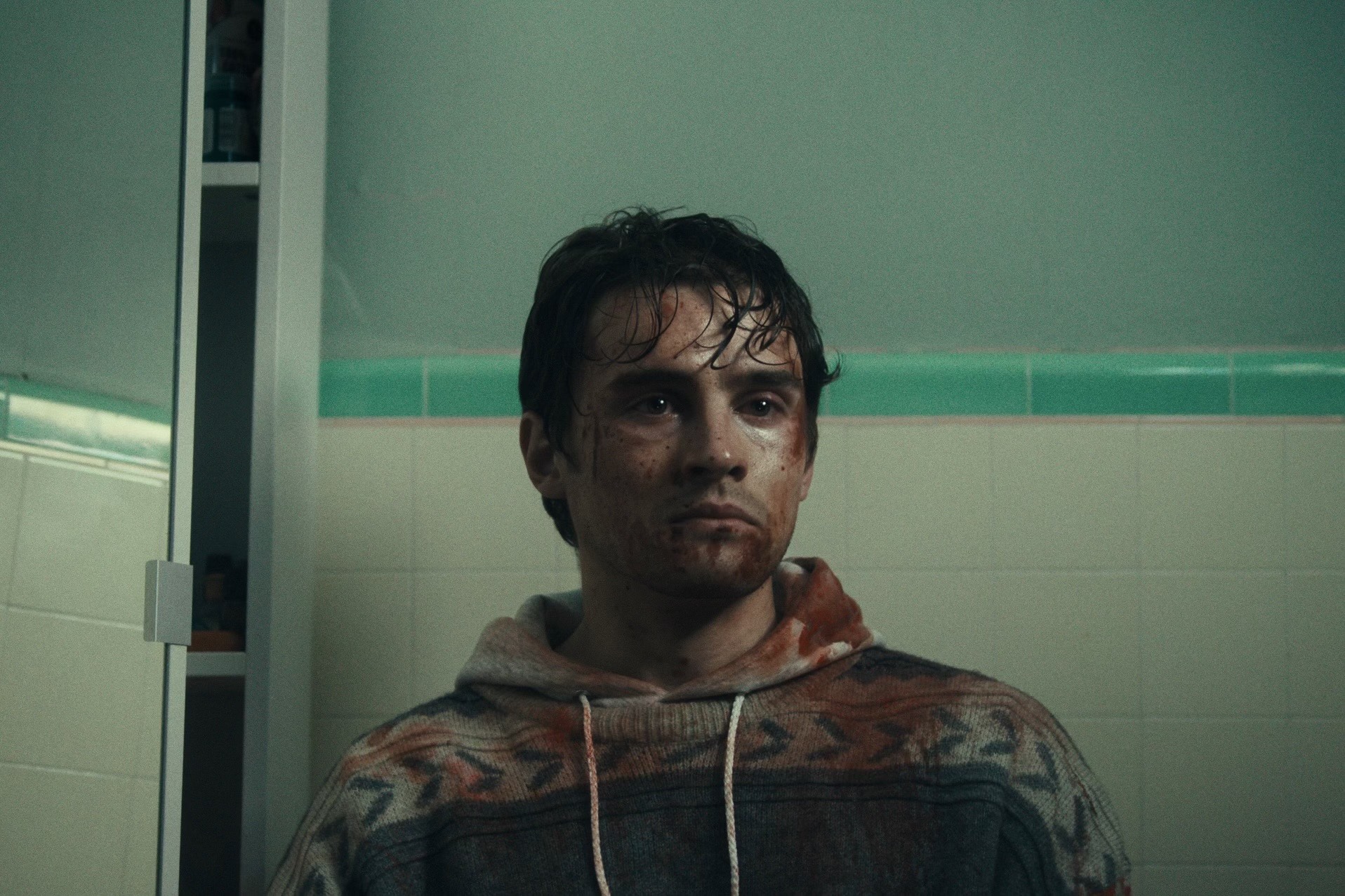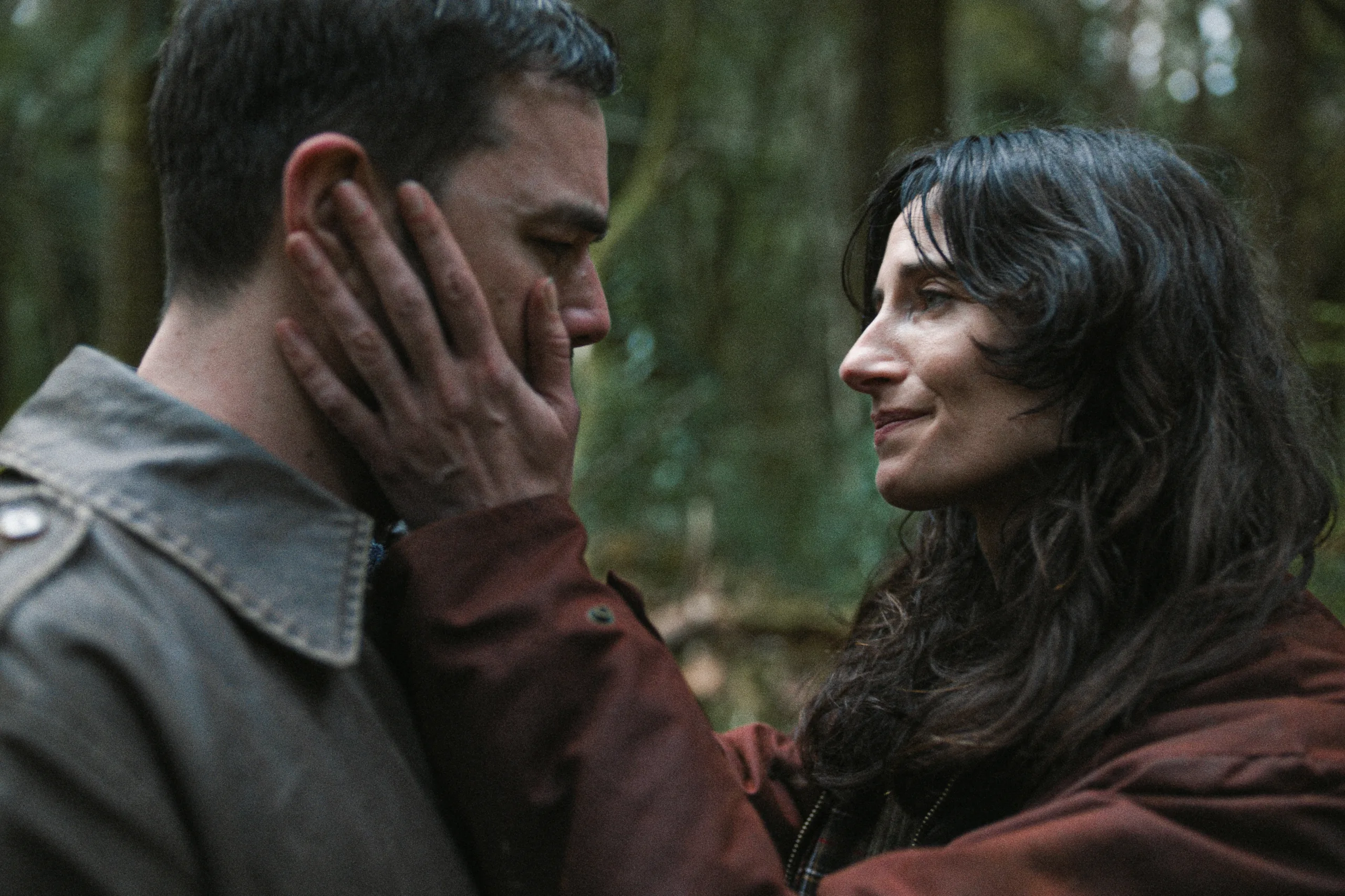
It feels almost like Fantastic Fest North this year at TIFF with a number of films that could have been programmed at the horror-centric Austin affair that unfolds just a week after the end of this one. (In fact, one film in this dispatch is doing double duty in the land of poutine and the land of BBQ.) Maybe there’s something in the air as more filmmakers grapple with the uncertain times in which we live, or maybe everyone continues to see that this is one of the few genres still assured of bringing people off their couch to the theater. Two of the films in this dispatch make that trip worthwhile.
Curry Barker’s “Obsession” is consistently f-ed up, and I mean that as a compliment. I see so many horror movies that threaten to get weird and gnarly, only to pull their punches right when shit gets real. Barker pulls nothing, getting darker, creepier, and bloodier with each passing scene in this study of extreme dependence. Some of the performances are a bit clunky, but that almost makes it more charming, a reminder of how great it can be when a horror movie sneaks up out of nowhere and punches you in the face. I was unfamiliar with Barker’s previous work. I plan to seek it out now. With the right studio, this movie should break him big.
If it does, it will draw comparisons to the excellent “Together” from earlier this year, another film that uses a supernatural hook to examine relatable relationship issues like unrequited love or a partner who is just a little too committed to the pair. Bear (Michael Johnston) suffers from the former as he has been terminally friend-zoned by the beautiful Nikki (Inde Navarrette). The film opens with him practicing with his friends about how to tell her how he feels. Then he goes home to find his cat has died. In this emotional spiral, he stumbles into a curio shop and finds an old toy called a One Wish Willow. Make a wish, snap the toy, and see what happens. No refunds. He should have watched more “Tales from the Crypt.”
Of course, Bear wishes that Nikki would fall for him, which she subsequently does, although he convinces himself it’s just a coincidence at first. Maybe this would have happened anyway. When he wakes to find her in the corner staring at him, he starts to suspect something much darker is happening, and then things get really weird. There’s a party scene in which Nikki’s unbreakable obsession comes to the surface that is one of the most hysterically captivating genre scenes of the year, a full-force piece of unhinged acting from Navarrette that deserves some kind of trophy.
Barker arguably leans a little too hard on gender-based tropes like the jealous girlfriend, but he admirably allows us to question how we feel about Bear as he does so. Bear has to know this isn’t right, but he pushes forward with Nikki far past what feels like a responsible endpoint, essentially comprising her autonomy for his own needs. The gender commentary in “Obsession” is smart without feeling overdone, but it’s the truly gnarly gore and remarkable ending that will have people talking.
Genre fans are also likely to gab about Madeleine Sims-Fewer & Dusty Mancinelli’s fascinating “Honey Bunch,” a right turn from the filmmakers’ brutal “Violation” that makes it clear these are directors with a broad set of skills. “Honey Bunch” is a wonderfully strange film, a movie with the language of ‘70s Gothic Horror but also a darkly vicious vein of humor, especially as it gets increasingly ridiculous in the final act. Like “Obsession,” this one is also a commentary on gender roles and bodily autonomy, a theme that continues to be one of the most prevalent in the horror genre of the 2020s as the government takes away so much of our control.
It’s telling how ambitiously bizarre “Honey Bunch” is that the traditional plot recap that would go here is difficult to even begin. When the film opens, we know there’s been a car accident. Diana (Grace Glowicki) and her husband Homer (Ben Petrie, with the most ‘70s stache of the year) are at an old home in the Canadian countryside that’s straight out of “The Innocents” or “The Haunting of Hill House,” but this is not a ghost story. Diana is being treated for her injuries along with a girl named Josephina (India Brown), who is there with her father Joseph, played by Emmy nominee Jason Isaacs, doing a project with echoes of his underrated “A Cure for Wellness.” Call this one “A Cure for Maleness.”
From the sepia-drenched first scenes of the film, one knows Diana is in trouble. Sims-Fewer and Mancinelli employ the language of movies like “Rosemary’s Baby” and “The Wicker Man” like a weapon, knowing that we’ll be untrusting of hospital figures played by great performers like Kate Richie and Julian Richings from their very introduction. I laughed out loud when after I took a note about the film’s clear “Rebecca” influence to hear Diana literally quote the text. The filmmakers let us in on the joke. They know we’ll see the references. That’s part of the experiment.
When Diana starts having terrifying visions around the house, the onion of the film starts to peel, but what’s most surprising about “Honey Bunch” is how much it allows itself to get remarkably goofy. The tone is always a bit left-of-center from Petrie’s exaggerated line readings to the abundance of zooms that call attention to themselves.
It’s the consistency of tone that impresses me. This isn’t a movie that flirts with weirdness, it commits to the relationship, embedding a social and sexual commentary into a story that plays like a nightmare or a death dream after a fight with your loved one leads to a car accident. It may not be the gut punch that “Violation” was but that’s almost what makes it more remarkable. Sims-Frewer & Mancinelli didn’t repeat themselves, and that’s even greater proof that they’ve got a lot of impressive work ahead of them.

Finally, there’s the slow burn of Nanouk Leopold’s “Whitetail,” a movie so awash in immovable trauma that it sinks under the monotony. Natasha O’Keefe is effective in carrying the weight of the grief that defines this film, but it’s one of those works that feels over-directed, manufactured and manipulative instead of organic.
O’Keefe plays Jen, who we meet at a younger age, played by Abby Fitz, as she’s with her boyfriend Oscar (Sean Treacy) in the woods doing the kind of thing that young people do while they’re supposed to be hunting deer. After consummating their relationship, they spot a whitetail and Jen hesitates to shoot the beautiful creature, only succumbing to Oscar’s pressure to do so and firing too quickly, not really seeing what’s in her sights. Jen makes a mistake that would crack the world open for anyone, creating a chasm between the person they were before and the person after. It’s a truly traumatizing prologue for the film, one that sets the temperature for the atmosphere of misery that follows.
Jen has gone about her life, caring for her father and even becoming a conservationist, but everything is rattled when Oscar (Aaron McCusker now) returns to the community. At the same time, he brings up pain and horror in Jen’s heart, a poacher is stalking the area, angering Jen further as the local authorities seem to be entirely uninterested in doing anything about it.
Jen’s trauma is unimaginable, but she’s also a deeply unlikable character, aggressively pushing at everyone her as she spirals into her own pain. Of course, “Whitetail” doesn’t exist unless it presents Jen with an arc to redemption, but the brutally unceasing dourness of her story becomes numbing. Through it all, O’Keefe makes interesting enough choices to hook some viewers, but this one simply wasn’t caught.
Source link

